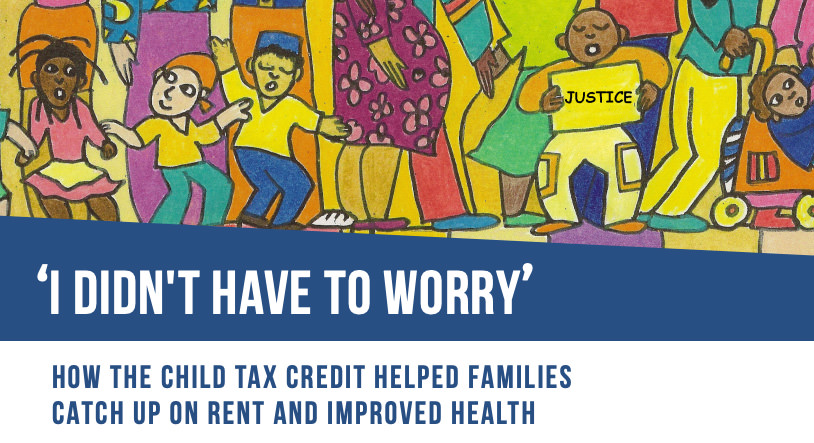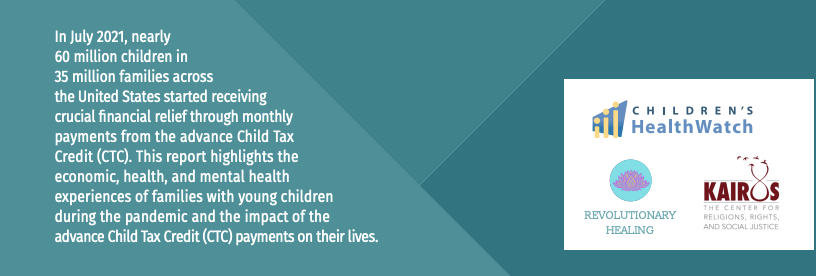
The Child Tax Credit Benefits Whole Families: Preliminary data show improved food security and parental health
by Allison Bovell-Ammon, MDiv; Stephanie Ettinger de Cuba, PhD, MPH; Félice Lê-Scherban, PhD, MPH; Shailly Gupta-Barnes, JD; Lindsey Rateau, MPH; Charlotte Bruce, MPH; Richard Sheward, MPP; Deborah A. Frank, MD
May 9, 2022
Children’s HealthWatch, Boston Medical Center; The Kairos Center for Religions, Rights, and Social Justice

Summary of Findings
New preliminary data from Children’s HealthWatch highlight linkages between Child Tax Credit (CTC) receipt and food security as well as excellent or good parental health status among families with young children. Despite these positive signs, there were notable disparities in which families received the CTC – likely as result of structural racism and exclusions that should be rectified in future policymaking and implementation.
Policy recommendations to improve the Child Tax Credit
There is an urgent need to pass an extension of the advance CTC monthly payments, which expired at the end of 2021, and enact solutions that increase access to payments among marginalized families. The recommendations below will help promote food security and improve parent health.
Specifically, Children’s HealthWatch and the Kairos Center for Religions, Rights, and Social Justice urge Congressional leaders and the administration to swiftly enact the following changes:
- Pass a permanent and inclusive expanded Child Tax Credit that ensures all children — regardless of immigration status and without requirements for earned income — are eligible for monthly payments that improve family health and well-being.
- Invest in effective, culturally appropriate outreach and enrollment efforts that focus on community-driven solutions for increasing awareness of and access to the CTC.
- Reduce structural barriers to the CTC by creating a permanent, accessible simplified tax-filing platform available in multiple languages, that is consistently evaluated and improved to promote equitable access to the CTC — particularly for marginalized families.
It also called for robust, systemic policy change to eliminate poverty and hardship among families, including policies that:
- Establish universal rights and access to quality housing, food, and other basic necessities by improving government safety nets and permanently ensuring robust investment in programs and policies that support family economic stability.
- Guarantee access to health care, including mental health care services, for all people.
- Reverse discriminatory policies that explicitly or implicitly exclude families from accessing critical benefits and promote policies that actively promote racial equity through intentional efforts to respond to the needs of specific communities.
- Implement automatic stabilizers across policies that ensure programs and income supports are able to rapidly respond to economic downturns and pass regulatory measures for corporations and other highly profitable entities to reduce rising inflation that directly impacts the costs of basic needs.
Watch the roundtable discussion with the research team, as well as Rev. Dr. Liz Theoharis and Kenia Alcocer (Union de Vecinos), and this video from our cultural program team.
This research is part of a partnership between Children’s HealthWatch and the Kairos Center for Religions, Rights, and Social Justice. We would like to thank the generous supporters of this project: the Charles and Lynn Schusterman Family Philanthropies, the Boston University Center for Antiracist Research, and the Annie E. Casey Foundation.